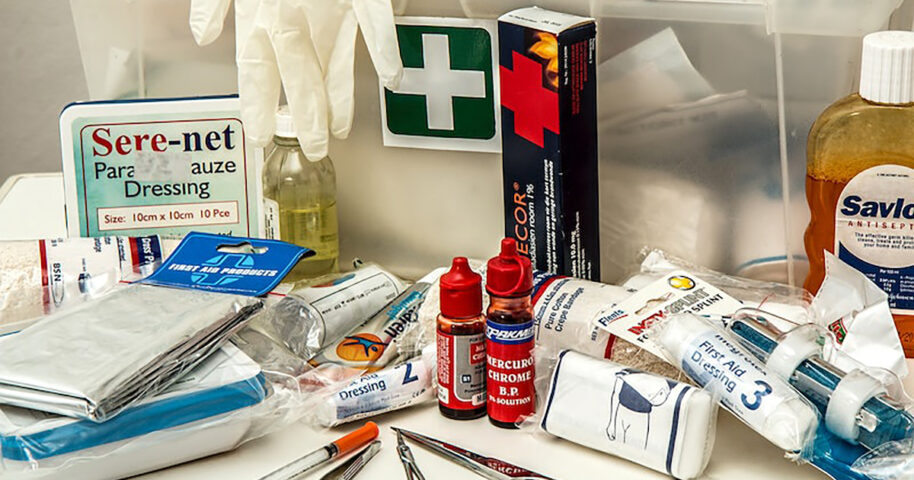
Deciphering the Health Quotient: A Comprehensive Exploration of Honey Versus Sugar
May 3, 2024
Vitamin D’s Influence on Gut Microbiome Enhances Cancer Immunotherapy: Exploring New Avenues in Cancer Treatment
May 7, 2024A Guide to Essential Medical Equipment for Emergencies : Empowering Home Preparedness
In the wake of the COVID-19 pandemic, the imperative of prioritizing health and safety has never been more apparent. With hospitals and medical specialists facing unprecedented strains on resources, individuals increasingly recognize the importance of proactive health management and emergency preparedness. Equipping households with essential medical devices not only prevents serious health complications but also ensures the capacity for prompt emergency response when needed. Amidst the myriad options available, we present a list of the top five medical equipment pieces every home should consider for comprehensive preparedness.
1. Automated External Defibrillator (AED):
As cardiovascular diseases continue to rise, particularly affecting individuals with pre-existing heart conditions, the presence of an AED at home becomes paramount. These compact devices can be lifesaving in the event of sudden cardiac arrest, administering a controlled electric shock to restore the heart’s rhythm. While once relegated to public spaces like malls and airports, AEDs are now accessible for home use, accompanied by user-friendly instructions for swift deployment.
2. Digital Blood Pressure Monitor:
High blood pressure, a pervasive health concern, underscores the importance of regular monitoring to mitigate the risks of heart attacks and strokes. Digital blood pressure monitors offer convenience and accuracy, facilitating easy at-home monitoring of blood pressure fluctuations. With advanced features including memory storage and additional metrics such as oxygen levels and pulse rates, these devices provide valuable insights for early intervention and treatment efficacy assessment.
3. Glucometer:
Diabetes management hinges on vigilant monitoring of blood glucose levels, making a glucometer an indispensable tool for households with diabetic family members or individuals at risk of developing diabetes. Beyond diagnosing diabetes, regular blood sugar monitoring enables proactive measures to prevent complications and maintain optimal health. With user-friendly designs and non-invasive options available, glucometers empower individuals to take control of their metabolic health with ease.
4. Pulse Oximeter:
Once confined to clinical settings, pulse oximeters now offer the convenience of at-home oxygen saturation monitoring, particularly valuable for individuals with respiratory conditions or recovering from respiratory illnesses like COVID-19. By gauging blood oxygen levels non-invasively through fingertip sensors, these devices provide valuable insights into respiratory function and can prompt timely intervention in case oxygen saturation drops below normal levels.
5. Nebulizer:
Respiratory disorders such as asthma and COPD demand swift intervention, making a nebulizer an essential addition to home medical equipment arsenals. These specialized devices administer bronchodilators directly to the lungs, providing rapid relief from breathing difficulties. By minimizing reliance on hospital visits and emergency room admissions, nebulizers empower individuals to manage respiratory conditions proactively and effectively at home.
Conclusion:
The ongoing global health crisis underscores the imperative of proactive health management and emergency preparedness at the household level. Investing in essential medical equipment offers a tangible means of safeguarding health and well-being, providing peace of mind amidst uncertain times. By equipping homes with AEDs, digital blood pressure monitors, glucometers, pulse oximeters, and nebulizers, individuals can take proactive steps to prevent health crises and respond effectively to emergencies when they arise.
Moreover, selecting the right medical equipment entails careful consideration of individual needs and consulting with healthcare professionals for personalized recommendations. Regular maintenance and inspection of medical devices ensure their reliability and functionality, minimizing the risk of equipment failure during emergencies. With these essential tools at their disposal, individuals can navigate health challenges with confidence, resilience, and preparedness, ensuring a safer and healthier future for themselves and their loved ones.
FAQs
1. Why is it important to have medical equipment at home? Having essential medical equipment at home ensures preparedness for emergencies, especially in situations where access to hospitals or medical specialists may be limited. Equipping households with devices like AEDs, blood pressure monitors, glucometers, pulse oximeters, and nebulizers enables prompt response to medical crises and proactive management of chronic conditions.
2. How do I choose the right medical equipment for my home? Selecting the appropriate medical equipment involves considering individual health needs, existing medical conditions, and potential emergencies. Consultation with healthcare professionals can provide valuable guidance in determining which devices are most crucial for your situation. Factors such as ease of use, accuracy, and additional features should also be taken into account when making purchasing decisions.
3. Are these medical devices easy to use for individuals with limited medical knowledge? Many modern medical devices are designed with user-friendly interfaces and clear instructions, making them accessible even to individuals with limited medical knowledge. However, it is advisable to seek proper training and familiarize yourself with the operation of these devices, particularly in emergency scenarios, to ensure their effective utilization.
4. How do I maintain and ensure the reliability of home medical equipment? Regular maintenance and inspection of medical equipment are essential to ensure their reliability and functionality during emergencies. Follow manufacturer guidelines for cleaning, calibration, and storage of devices, and perform routine checks to identify any signs of wear or malfunction. Additionally, keep a record of maintenance activities and schedule periodic checks to ensure optimal performance.
5. Can home medical equipment help prevent medical emergencies? While home medical equipment cannot entirely prevent medical emergencies, it can play a crucial role in early detection, intervention, and management of health conditions. Regular monitoring of vital signs such as blood pressure, blood glucose levels, and oxygen saturation enables timely detection of abnormalities and implementation of preventive measures to mitigate the risk of serious complications.
6. Where can I purchase reliable home medical equipment? Reliable home medical equipment can be purchased from reputable medical supply stores, pharmacies, and online retailers. Ensure that the devices you choose meet quality standards, have positive user reviews, and come with warranties or guarantees. It is also advisable to consult with healthcare professionals for recommendations on trusted brands and models suitable for your specific needs.


